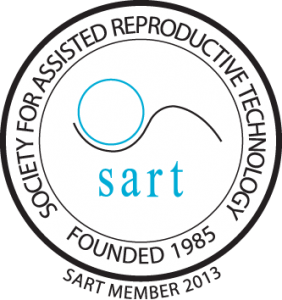IVF pregnancy rates – Why it’s important to make sure that your Austin fertility center reports to SART
 In 1992, Congress passed the Fertility Clinic Success Rate and Certificate Act. This law required every IVF program in the United States to collect data on every IVF cycle that they perform. They then report had to report their IVF pregnancy rates annually to the Center for Disease Control (CDC) and the Society for Assisted Reproductive Technology (SART). In addition, IVF practices also had to confirm that their IVF laboratory had certification from the proper regulatory authority.
In 1992, Congress passed the Fertility Clinic Success Rate and Certificate Act. This law required every IVF program in the United States to collect data on every IVF cycle that they perform. They then report had to report their IVF pregnancy rates annually to the Center for Disease Control (CDC) and the Society for Assisted Reproductive Technology (SART). In addition, IVF practices also had to confirm that their IVF laboratory had certification from the proper regulatory authority.
SART and the CDC have the responsibility of publishing an annual report so that patients could make sure that the program that they were working with met at least the minimum requirements of the law. Programs that do not comply with the law are in the Federal Register as “non-reporters.” This means they are not in compliance with either the law or SART guidelines. As a result, they risk losing their membership in SART. They also run the risk that insurance will not cover their services.
The primary purposes of the 1992 law are to:
- Ensure that each IVF facility meets the minimum requirements established by our professional organizations
- Enable patients to confirm that success rate statistics from SART member clinics undergo independent audit and validation (and therefore believable)
- Ensure that all IVF laboratories receive certification from the appropriate regulatory authorities. This means they have met all applicable safety regulations, and that appropriate standard operating procedures and protocols are in place to provide patients with an optimal chance for success
- Prevent clinics from providing patients with incorrectly collected or misleading success rate statistics when they are at a very vulnerable time in their fertility treatment.
Independent inspections of IVF laboratories
Every year, a specific number of IVF laboratories must comply with independent inspection by certified IVF laboratory directors assigned by SART and the CDC. Programs chosen for audit are selected in one of two ways: either as part of a random drawing, or because their pregnancy rates are in the top 10% of programs in the country.
At the Texas Fertility Center, we get audited nearly every year. Although this process is both time consuming and expensive for us, we willingly participate. We know that it ensures that we are providing the best possible quality of IVF care. In addition, as four of our embryologists and our medical director are inspectors of other laboratories. As a result, we also know that the process is rigorous and objective. It also improves the quality of care that we all provide to our patients.
It is very important that – before you undergo an IVF cycle – you make sure that the IVF Center that you are working with reports their data to SART and that they comply with SART guidelines. Click on the link below to connect to the most recent SART report so that you can ensure that your IVF facility is reporting their data and complying with the SART guidelines.














Comments are closed.